L
ogistics. Your average filmmaker’s worst nightmare. A good film producer, however, knows that the better organized a shoot is, the better the outcome for everyone involved.
Historically this has included number different documents, over numerous different programs. For me personally, it involved spreadsheets, running sheets and never-ending ‘to do’ lists.
However, with the emergence of all things tech, things are getting a heck of a lot easier for anyone looking to be more organized on a shoot. Let me show you how.
Customer Success: How Diana Fisk Streamlined the Call Sheet Process
Better Living Through Technology
Thanks to technology, it’s now possible to take releases on the spot without having to worry about losing paperwork. To record expenses and have them feed into your budget.
You can even create a simple spreadsheet online that allows the crew to see their up to date travel information as you go.
It’s an amazing time to be a logistics nerd with so many resources easily accessible and free to use.
Around eight months ago, while working as a documentary film producer, I was introduced to StudioBinder. A program from logistics heaven that I would now struggle without.
I have been using StudioBinder now daily when on production and more and more outside of production.
For me, the call sheets aspect of StudioBinder has been a huge advantage, and here are my top three reasons why.
CUSTOMER SUCCESS: HOW DIANA FISK STREAMLINED THE CALL SHEET PROCESS
1. Never Repeat Things
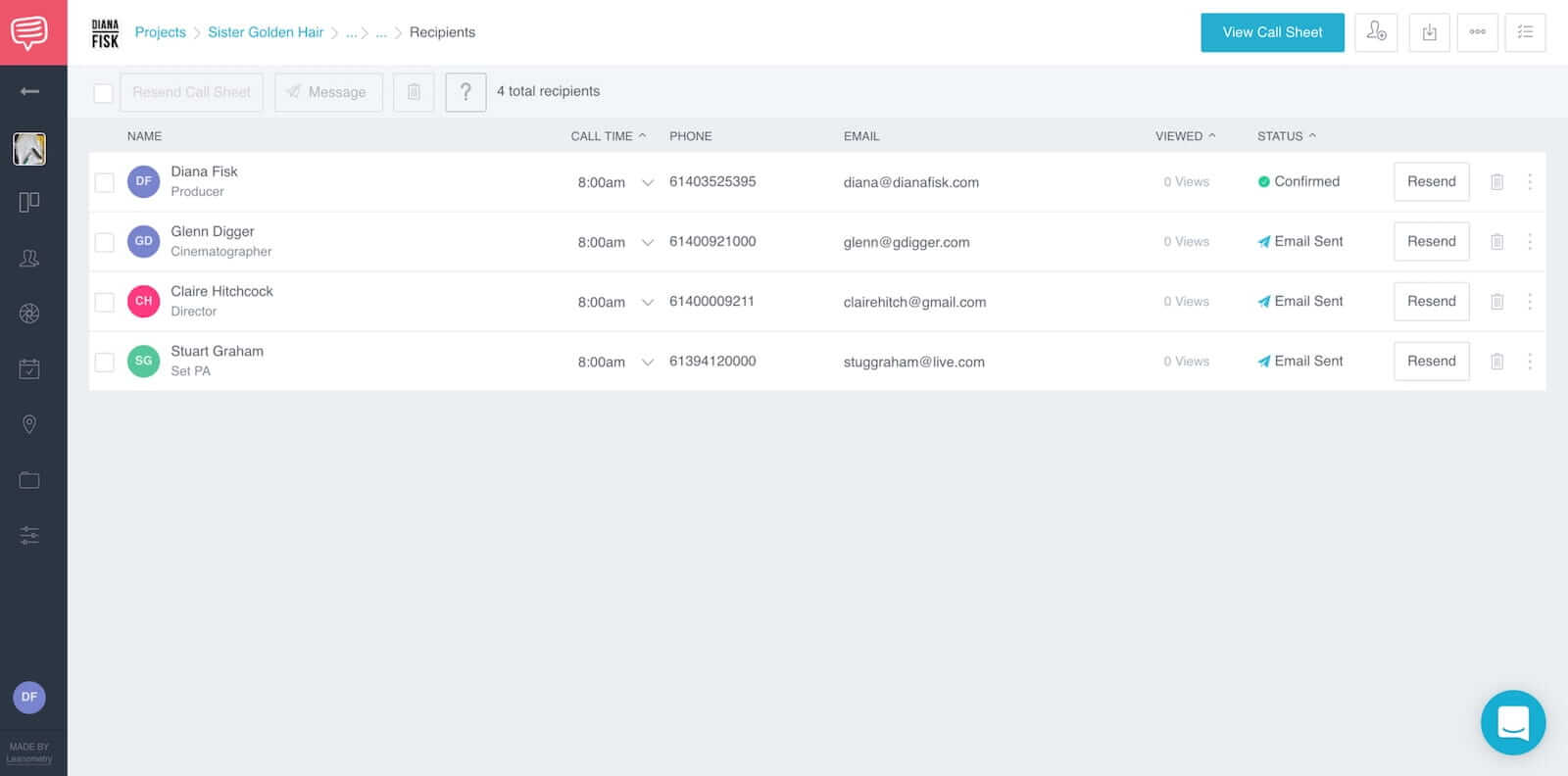
It can be incredibly helpful to sort your contacts by project.
As a producer, I used to spend hours in Photoshop, Illustrator, or even sometimes Word, creating nice looking call sheets for every day of the shoot.
Sure, it was easy enough to create a template for the actual call sheet. But having to enter in the same information over and over again was a huge time waster. And, I might add, quite frustrating.
StudioBinder’s automation features sped things up in a big way.
All I need to do is upload the production contact list before the shoot begins along with all known locations.
After that, it’s a case of selecting the relevant people from the contact list and locations for each day and all the information filters over.
What used to take me up to half an hour, is now done within minutes.
BEYOND CALL SHEETS
I have personally taken this one step further with StudioBinder becoming my personal contact list for filmmaking. My “producer's black book”, if you will.
Like many a producer, I used to have a stack of business cards on my desk, a folder full of ‘connections’ in my email and random people saved into my phone.
My "producer's black book" is now much more streamlined.
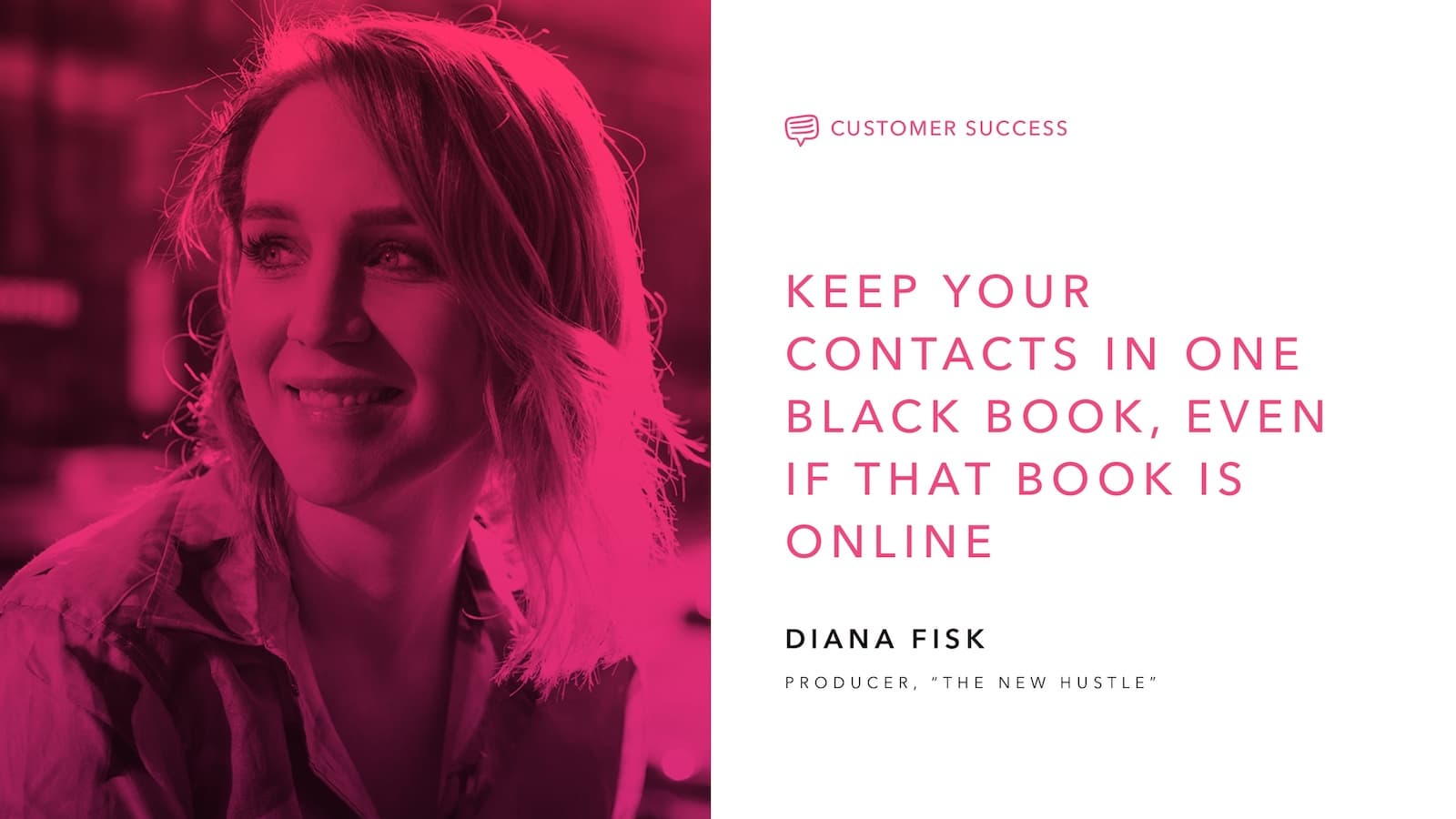
Diana Fisk - Black Book - StudioBinder
If I meet anyone that I might want to work with in the future, they go into my StudioBinder contact list. That way, I only have to enter people in once and I know all of my contacts are in the one spot when I need them.
From there the logistics possibilities are endless. I can create tasks for contacts (a bit like Trello) and upload all my production documents in one spot.CUSTOMER SUCCESS: HOW DIANA FISK STREAMLINED THE CALL SHEET PROCESS
2. Make Call Sheet Approvals Quicker and Easier
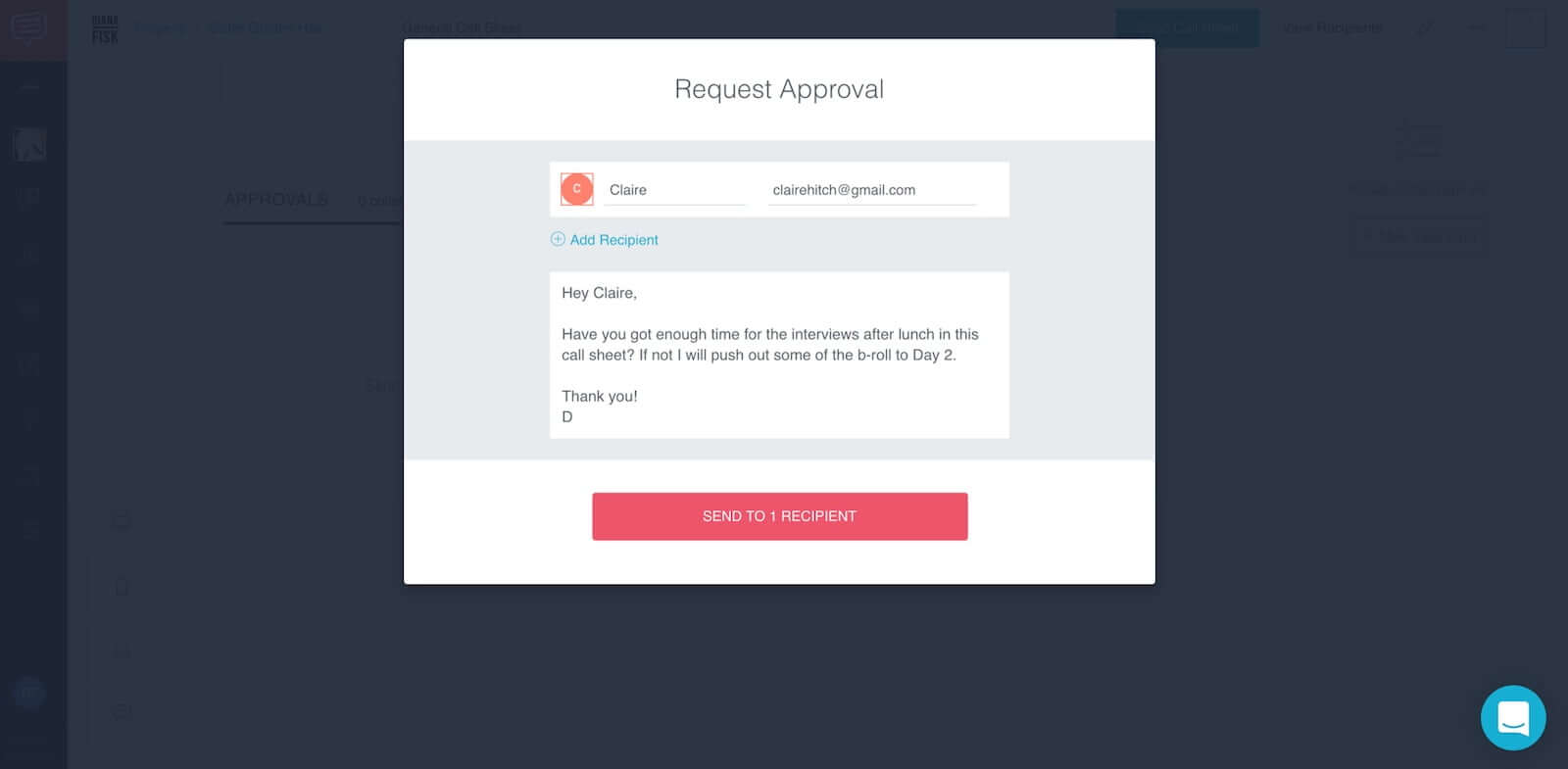
An example of a call sheet approval request.
This was a huge bonus for me. Depending on what kind of shoot I’m acting as a producer for, I often have the need to run the call sheet by either the director or DP for feedback on timings, time of day etc.
Here are the steps I used to take to get call sheet approval:
- Designing the call sheet
- Importing the information
- Saving to PDF
- Emailing to the director
- Waiting for an email with feedback
- Opening the document back up
- Making changes
- Possibly sending it back for one last approval
- Exporting the final document to PDF
- FINALLY, e-mailing it out to the production contacts
And now:
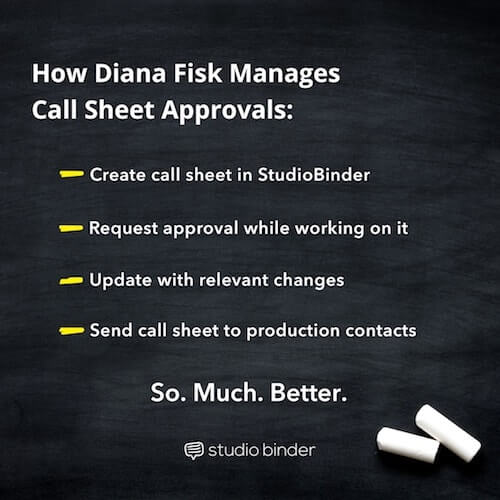
So. Much. Better.
CUSTOMER SUCCESS: HOW DIANA FISK STREAMLINED THE CALL SHEET PROCESS
3. Get Call Times Confirmed in Real Time
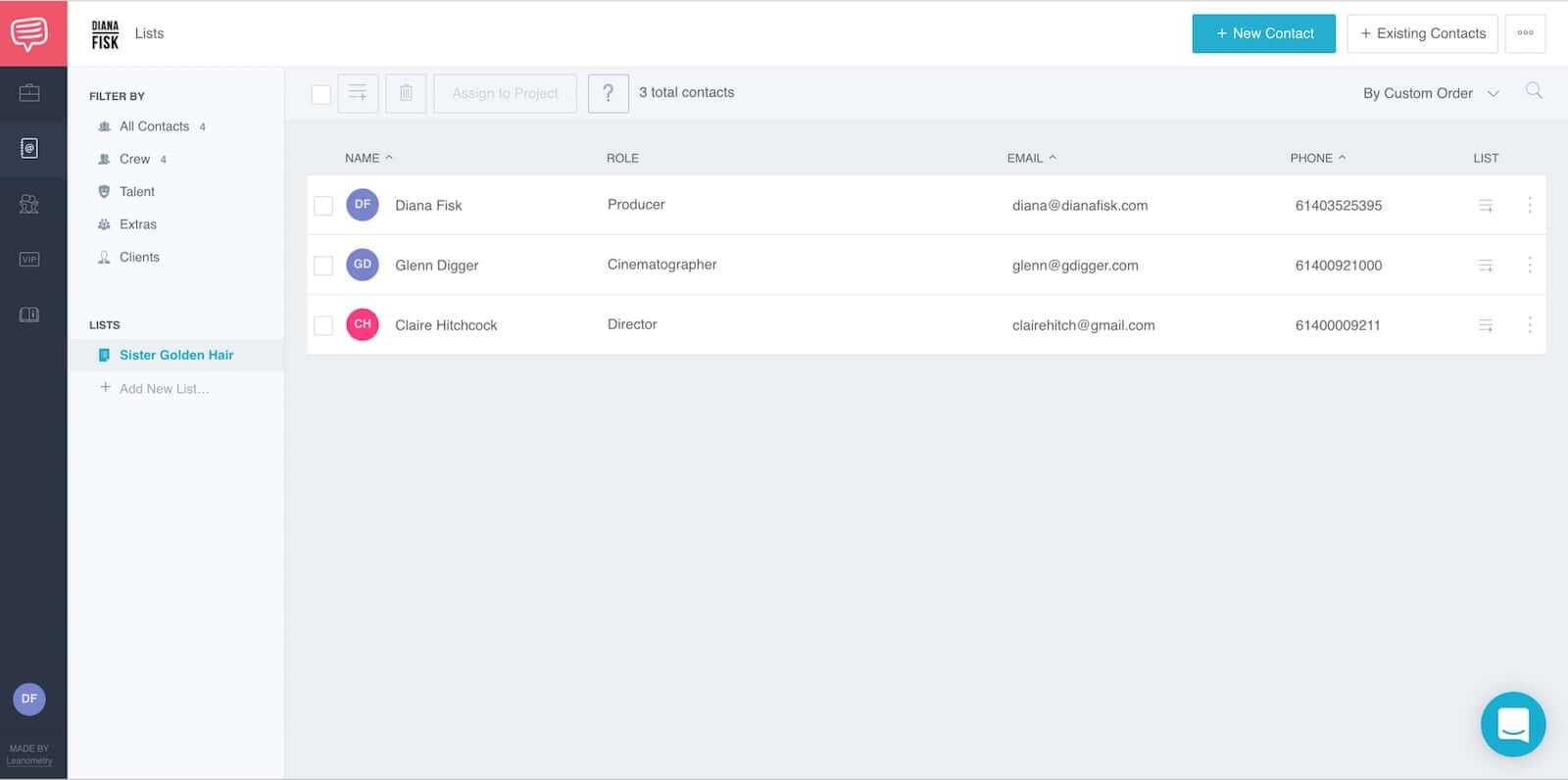
Never chase people down over their call times again. Well, hardly ever, at least.
The way I used to confirm call sheets is a familiar story to many a producer.
Here’s how it would usually go:
Now, I have a very streamlined process.
At the beginning of any production, I make it very clear when to expect the daily call sheets, who needs to confirm, and what happens if this isn’t confirmed.
It’s then as simple as checking on StudioBinder by 7pm the night before the shoot.
Whoever hasn’t confirmed gets a resend, an automated SMS (another awesome feature) and a message asking to confirm with me, within the next hour.
For anyone who still has not yet confirmed, I will chase them with a phone call to ensure they have received it. This doesn’t happen often.
But if it does, they soon learn that pressing the confirm button on that initial email saves lots of messing about for producer and crew alike.
CUSTOMER SUCCESS: HOW DIANA FISK STREAMLINED THE CALL SHEET PROCESS
4. Final Thoughts
It doesn’t matter if you’re a film producer, a line producer or just a production coordinator. If you are coordinating the logistics of a shoot and would like the process to be quicker and simpler, StudioBinder is a real game changer.
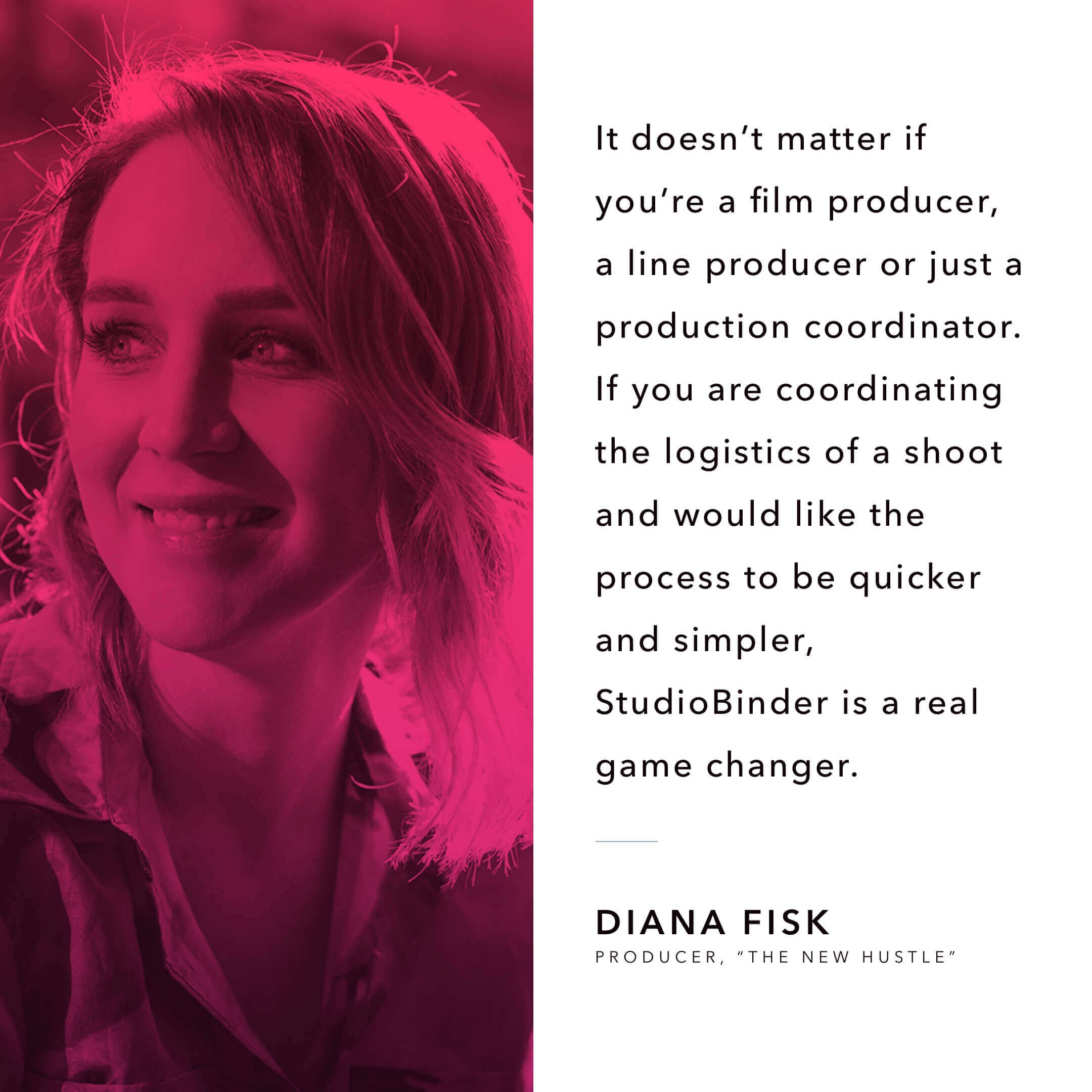
Diana Fisk - Quote Left - StudioBinder
The call sheet feature is just one of many awesome tools and once you begin using it you will never want to go back.
You can learn more about call sheets on StudioBinder’s blog, or sign up today to try their call sheet builder out for yourself!
